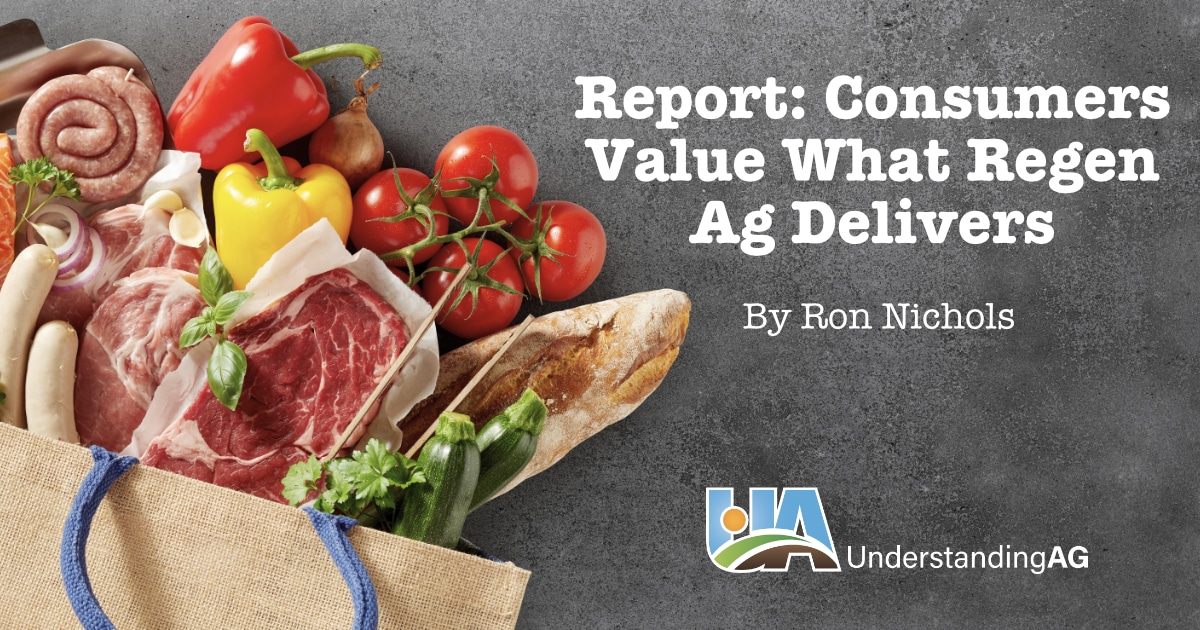
It’s been said that bringing facts to a cultural argument is akin to bringing water balloons to a gun fight. Still, data-based facts are stubborn things, and failure to heed those facts can be costly in life and in business.
For food and grocery industry companies, knowing what customers value (and what they’ll pay a premium for) are facts that can dramatically impact market share, profitability and brand value. That’s why the recently released, inaugural sustainability benchmark report for the U.S. Food and Grocery (F&G) industry is so important to those companies—and also to farmers and ranchers who produce (or who are considering producing) regeneratively grown agricultural products.
The survey, conducted from April-December 2022 by research technology company Glow and the global information services company NielsonIQ, is based on responses from 33,000 consumers. Using a nationally representative sample of U.S. consumers based on age, gender and geography, the survey was designed to obtain their views on 165 F&G brands.
The report’s data indicate consumers are changing brands to better align with their values and are switching to brands with the strongest perceived sustainability credentials at twice the rate of the average brand. One-in-two consumers report having changed F&G brands based on environmental, social, governance (ESG) considerations, with the number rising to seven-in-ten among Millennials.
The research also revealed that consumers have high expectations of brands, with 85 percent believing that it’s important for businesses to act responsibly when it comes to society and the environment. More than one in three consumers expressed that it’s very important for businesses to do so and this number rises to almost four in ten for Gen Z and Millennial consumers.
One in five consumers rank sustainability as a top three decision criteria, with one-in-ten millennials rating sustainability as their most important decision criteria in selecting F&G brands, above price and quality. As these younger consumers age and gain more purchasing power, their impact on brand ESG considerations will likely only increase.
For regenerative farmers and ranchers who market their pasture-raised proteins directly to consumers (like those featured in the Soil Health Academy’s/Understanding Ag’s “Shop Regen Foods” web feature), this latest research will come as no surprise. These farmers and ranchers don’t need a report to tell them what they already know: That a significant segment of consumers value how their food is grown and will pay a premium for flavorful, nutrient-dense food grown in an environmentally and humanely responsible way.
However, for data- and consumer-driven companies, this report will provide additional incentives for F&G industry brands to source (or expand their sourcing of) regeneratively grown products. That’s good news for the regenerative agriculture movement overall, and it represents a huge opportunity for individual farmers and ranchers to increase family farm profitability and sustainability by growing in nature’s image through the application of regenerative principles and practices.
It's often said that “Knowledge is power.” But I believe it’s more accurate to say, “Applied knowledge is power.” There’s no doubt that in the months and years ahead, many more F&G brands will be looking for ways to apply what they learned in this report to tap the branding power of regenerative agriculture.
I hope more farmers and ranchers will too.
